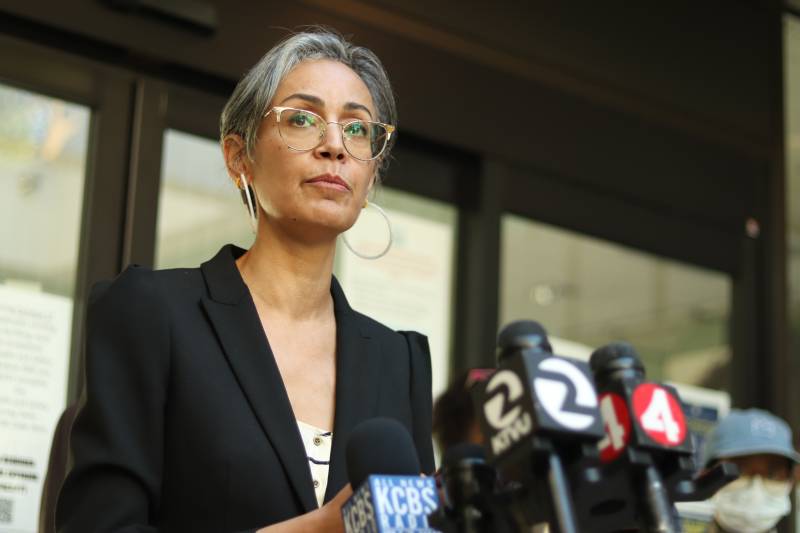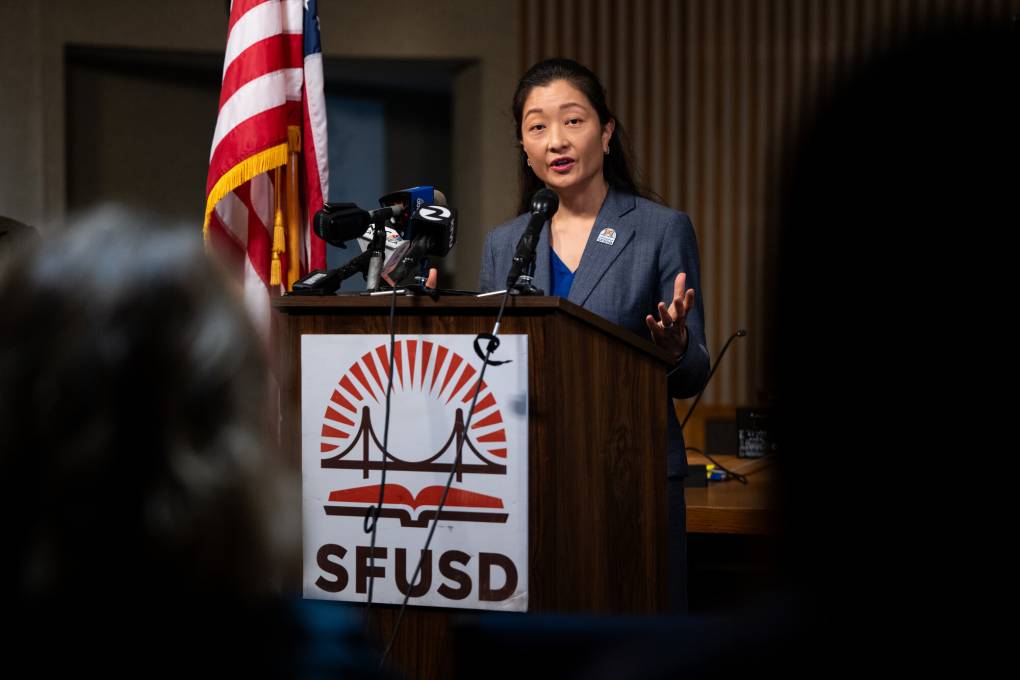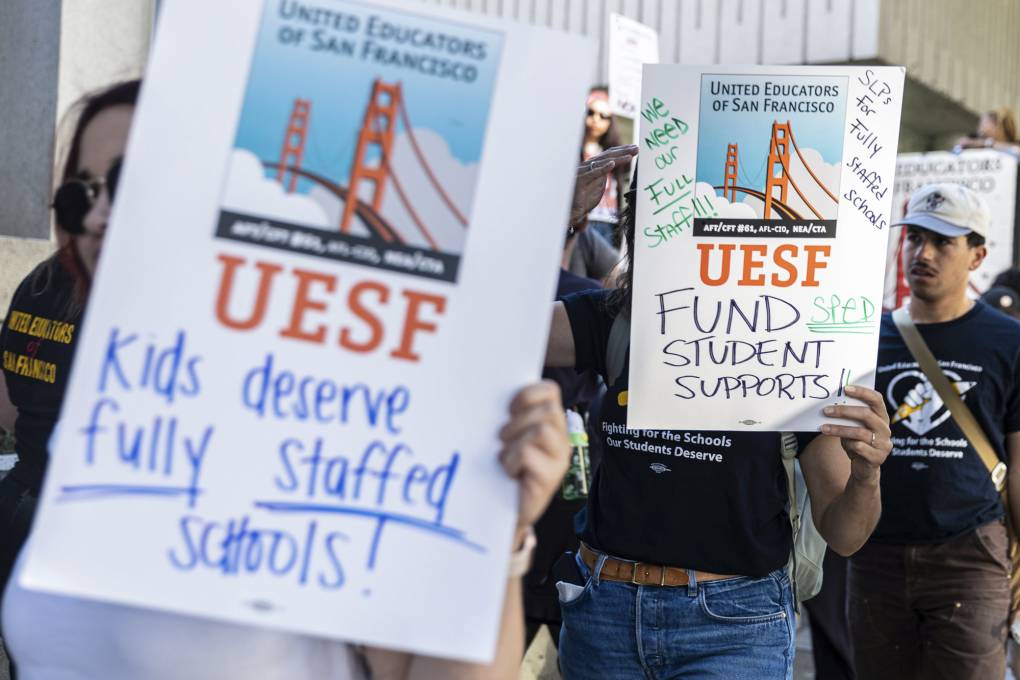Many Asian Americans, she wrote, “believe they benefit from the ‘model minority’ BS’ ” and “use white supremacist thinking to assimilate and ‘get ahead.’ ” Collins also used derogatory terms like "tiger moms" and "house n****r" in some references to Asian Americans.
At the end of the thread, Collins called for Asian Americans to speak out against then-President Donald Trump’s policies, citing an incident in which her daughter allegedly helped stop a group of Asian American boys from bullying a Latino student at her Asian American majority school.
“Don’t Asian Americans know they are on his list as well?” Collins wrote. “Do they think they won’t be deported? profiled? beaten?”
Collins has since said her words were taken out of context and apologized “for the pain my words may have caused.”
Since they were first circulated over a week ago, dozens of officials, including San Francisco Mayor London Breed, have condemned the tweets and called on Collins to resign, even as a number of local Black leaders and civil rights groups have come to her defense.
The posts were resurfaced amid a surge of violence and harassment against Asian Americans in the Bay Area and around the country, including a mass shooting in Georgia that left six women of Asian descent and two others dead.
The tweeting incident is the latest embarrassment for the city's embattled school board, which has prided itself on putting racial equity at the top of its agenda. The board has recently faced fierce criticism from parent groups for its handling of school reopenings, as well as its support for renaming many district schools and changing the admissions policy of its most prestigious high school.
During a school board meeting earlier this month, shortly after Collins' tweets reemerged, Lowell High School senior Shavonne Hines-Foster, a student delegate for the district and a member of her school's Black Student Union, admonished some of the adults who have been most vocal in this controversy. Students, she said, have been afraid to weigh in for fear of the backlash that might follow.
“A lot of students have stayed away from this because a lot of you are nasty, very nasty in how you engage in this conversation and bring in this topic,” Hines-Foster said. "A lot of us feel like it isn’t our place to be engaged, because we don’t want to be swept over or taken in or attacked as a casualty.”
Hines-Foster, who is Black, and two other San Francisco high school students, who are both Asian American, created a presentation summarizing their reactions to Collins' tweets, each teen offering a different perspective.
“I understand the message she’s trying to get to, just anti-Blackness in the Asian community. I think it’s a very real thing,” said Vishal Krishnaiah, a junior at Lowell High School, the only one in the group of three students who thinks Collins should resign. “And as an Asian person myself, I just can’t overlook the way she’s expressed that. I understand the message, but the way she said it is atrocious.”
Krishnaiah said he didn't understand what Collins gains from filing the lawsuit.
"After a long time of incessantly calling people out for even the most minor faults, the moment people retaliate for her own racist actions, she sues the very body that she represents," he said.
The third student, George Washington High School senior Madeline Cho, said she wants more people to be willing to talk about internalized racism and white supremacy.
And in order to have a constructive conversation, Cho said, people need to listen to the voices of those most hurt by racism and discrimination in San Francisco schools.
"There needs to be just an open mindedness and a setting down of ego and pride,” she said, “especially by a lot of politicians and particularly parents who seem the most hesitant to just calm down and just listen.”



